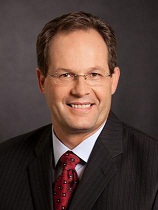Cisco Keeps NDS Sales and Services Teams Intact
The smarter way to stay on top of the multichannel video marketplace. Sign up below.
You are now subscribed
Your newsletter sign-up was successful

Cisco Systems may be trying to steer its service provider video business down a software road, but for now it’s leaving the sales and services teams from NDS -- which it acquired last year for $5 billion -- largely on their own, according to Marthin De Beer, senior vice president of Cisco’s Video and Collaboration Group.
Cisco is keeping the NDS’s services and sales teams separate, De Beer said, “so we don’t try to suck a software business into a hardware model, which the rest of Cisco operates in. We’re being very thoughtful about that.”
Given the size of the acquisition and NDS’s 5,500 employees, the integration of NDS has been proceeding “what feels to me at the speed of light,” De Beer said.
This week, Cisco reported revenue in its service provider video segment increased 20%, to $1.22 billion. The increase was completely attributable to additional business from NDS, according to the company.
"The integration of NDS continues to go very well, driving results on both the top and bottom line,” Cisco chairman and CEO John Chambers said on the earnings call.
Cisco closed the NDS deal on July 31, 2012. Literally the next day “we had a top 30 technical leaders in the room and they started work on a technical architecture” that would combine product lines of both companies, De Beer said.
“Within 30 days they had a unified architectural approach,” he said. That work culminated in the Videoscape Unity platform, which Cisco launched at 2013 International CES.
The smarter way to stay on top of the multichannel video marketplace. Sign up below.
“On the engineering side, we have made great progress,” De Beer said. “We’re actually delivering software to customers that show the proof points.”
According to De Beer, the hope that the NDS deal would give Cisco entrée into the satellite market is coming to bear. “We’re talking with satellite operators in countries where Cisco didn’t have a presence,” he said. In addition, “We are now have rich discussions with cable companies NDS didn’t previously have a relationship with.”
Cisco has now on-boarded most of NDS’s European employees, and De Beer expects the process to be completed for all former NDS workers by mid-2013. De Beer noted that Abe Peled, formerly executive chairman of NDS, remains in Cisco’s employ. Peled is heading overall strategy for Cisco's Video and Collaboration Group.
Meanwhile, Chambers, on the call with analysts Wednesday, said Cisco is in some cases “walking away” from low-end set-top deals.
That’s not to say Cisco is exiting the business -- far from it, according to De Beer.
“For now, I would say there continues to be a need for set-top boxes,” he said. “We’re continuing to deliver set-tops to our customers but as smart TVs become available with the right processing capabilities, obviously that same software we are delivering on an Android phone can run on the TV.”
Asked whether set-top box sales overall for Cisco have been holding up, De Beer said, “If you looking back at our market share numbers we continue to do very well. The whole market is going through this transition… We’re holding our own in terms of market share on set-tops.”
De Beer assumed his current role in August 2011, after Cisco combined its service provider and enterprise video businesses. Enrique Rodriguez, who ran Cisco's Service Provider Video Technology Group, departed in that reorganization, and the company named Jesper Andersen as general manager of SPVTG in November 2011.
